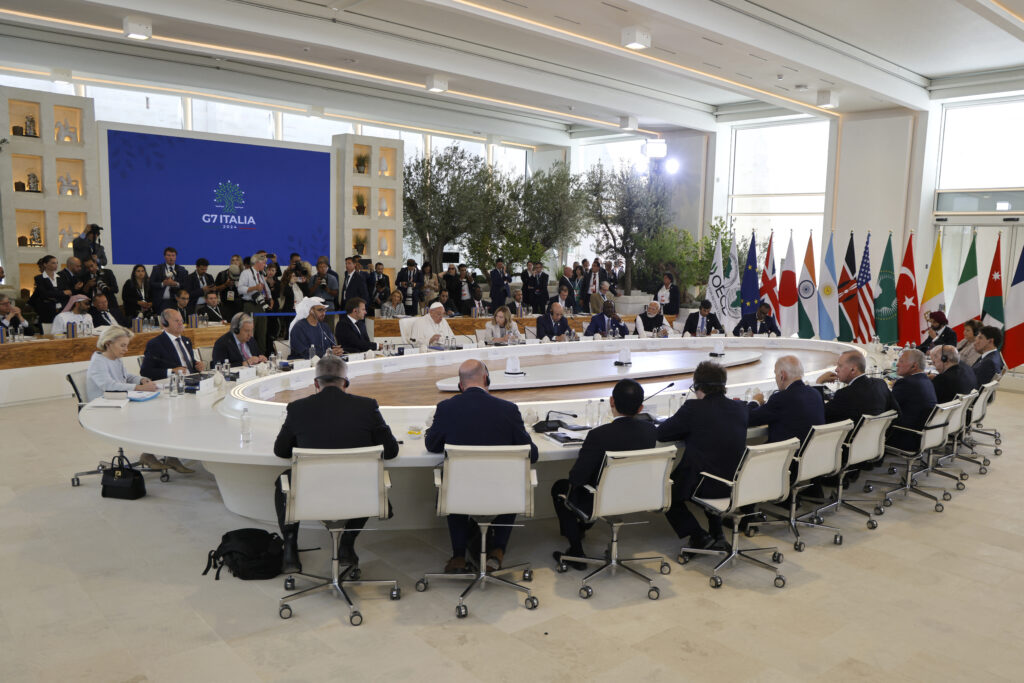
- ARAB NEWS
- 18 Jul 2025

FASANO: The heads of the Group of Seven major powers said in a joint statement Friday that they will launch an action plan to deal with the positive and negative impacts of artificial intelligence on employment.
In the statement, adopted at their meeting in Puglia, southern Italy, the leaders of Britain, Canada, France, Germany, Italy, Japan and the United States plus the European Union welcomed the support from countries outside the G-7 forum for the Hiroshima AI Process, an international rulemaking framework for generative AI led by Tokyo, saying that they recognize the importance of advancing the framework’s outcomes.
The Hiroshima AI Process was established at last year’s G-7 summit, which was chaired by Japan. Over 50 countries and regions have signed onto the framework. Japanese Prime Minister KISHIDA Fumio said in the G-7 leaders’ discussions Friday that he hopes to continue cooperation on the subject.
Under this year’s G-7 chair, Italy, discussions have centered on the potential benefits of AI to labor and the risk of the technology depriving people of work.
The G-7 leaders said in the statement that they will “work to ensure that AI enables increased productivity, quality jobs and decent work,” and that they will strengthen labor market policies, including in light of tackling AI’s negative effects.
“We emphasize the need to…equip workers and employers with the skills and competencies needed to design, adopt and work with a human-centric, safe, secure and trustworthy AI,” the statement said.
The G-7 is set to advance discussions on concretizing the action plan chiefly through G-7 labor ministers’ meetings, with an aim to improve workers’ AI utilization skills.
Pope Francis attended the G-7 leaders’ discussions on AI Friday, delivering a speech to address ethical concerns regarding the use of the technology.
The G-7 communique also slammed China’s “persistent industrial targeting and comprehensive nonmarket policies and practices,” in an apparent reference to Beijing’s massive subsidies for electric vehicle production.
“We…call on China to refrain from adopting export control measures, particularly on critical minerals, that could lead to significant global supply chain disruptions,” it also said.
JIJI Press